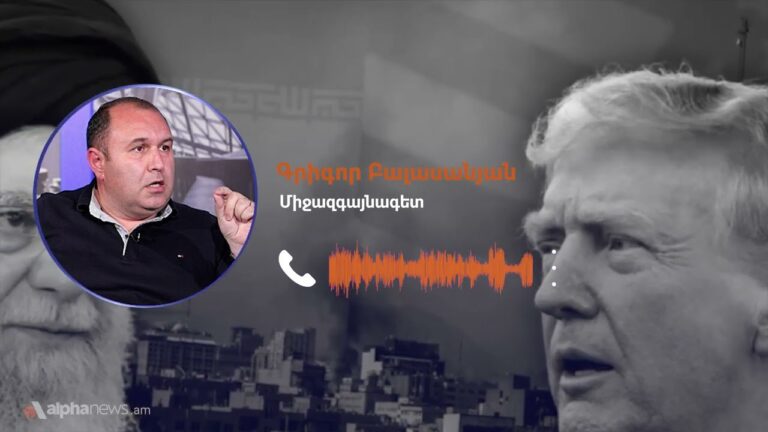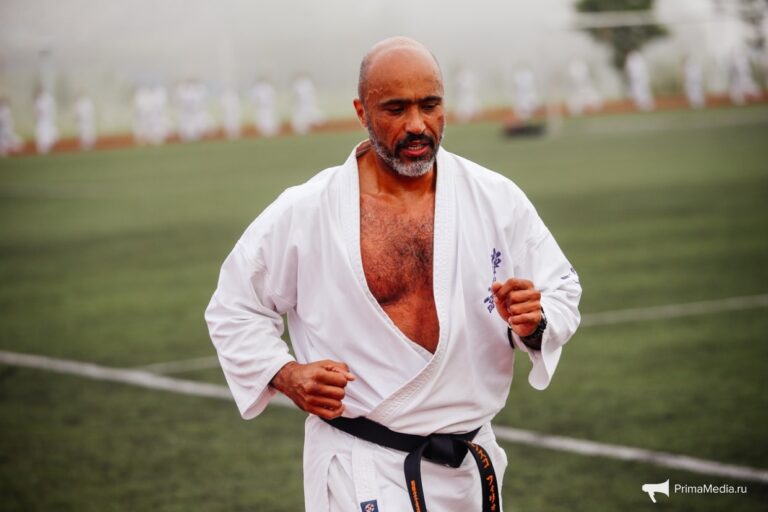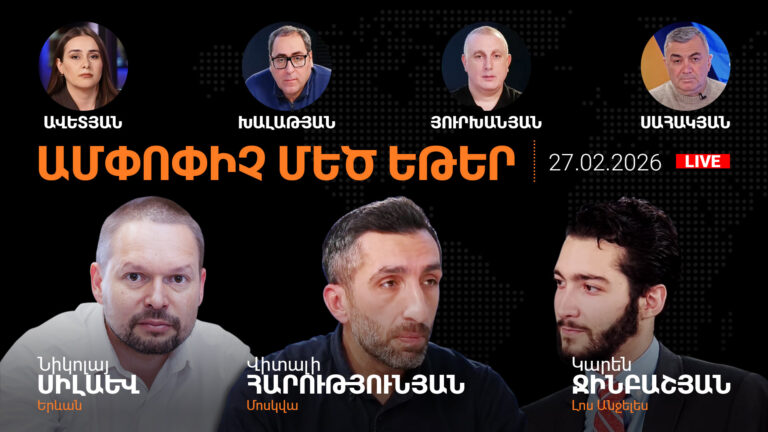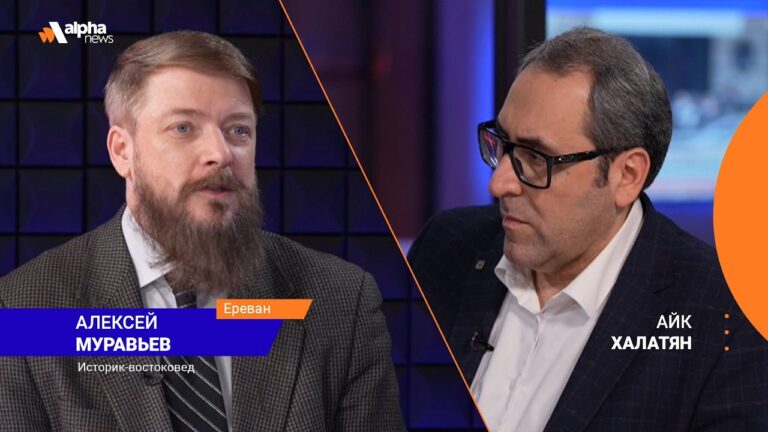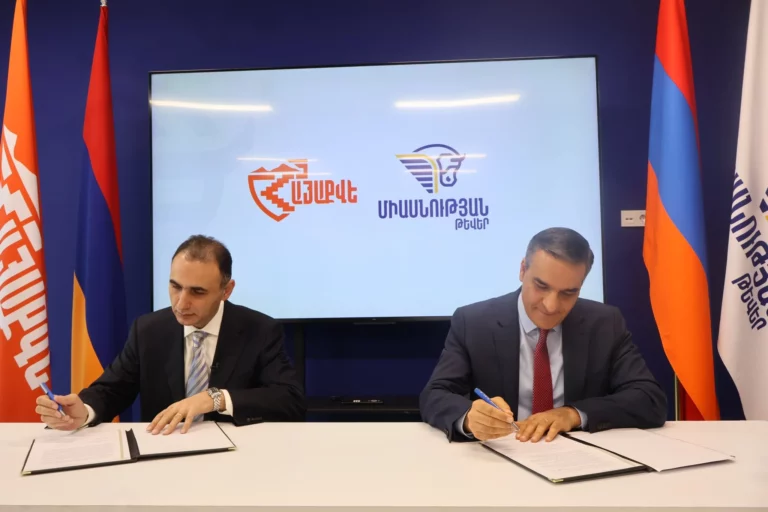Aliyev demands “unconditional surrender of Armenia”. Does Pashinyan have nothing to respond to?
January 16 2024, 13:25
Speaking to members of the Civil Contract Party, Nikol Pashinyan admitted the complete failure of the concept of the so-called crossroads of peace and his total political bankruptcy.
In his interview, to which Nikol Pashinyan allegedly responded, Ilham Aliyev presented his political project, with which he will go to the snap presidential election next month—a project involving the complete and unconditional surrender of Armenia.
Pashinyan is correct in his assessments when he notes that by opposing Armenia’s right to purchase weapons, Ilham Aliyev casts doubt on the very existence of the Armenian state.
What should Nikol Pashinyan have opposed to Aliyev’s demands? First and foremost, he should have countered Aliyev’s threats with an adjustment of foreign policy and a focus on building a new format of regional cooperation with Russia and Iran that would have not only a political and economic component but also a military one.
However, what did Nikol Pashinyan do instead? On the one hand, he sent his Secretary of the Security Council to Davos to participate in a meeting on Zelensky’s “peace formula”, which implies, among other things, the creation of an international tribunal against the military and political leadership of Russia (by the way, even according to Bloomberg, this meeting failed). On the other hand, he made a still-born proposal to sign an agreement with Azerbaijan on mutual arms control.
In this proposal, Pashinyan and his team’s detachment from “reality” is obvious. As in the case of signing a full peace treaty between the countries and the proposal on arms control, there is one fundamental problem: Azerbaijan does not feel threatened by Armenia. Azerbaijan needs neither a peace treaty nor an agreement on arms control, although it is obvious that the unconditional capitulation of Armenia, which Azerbaijan is trying to impose, will involve control over the arms and the size of the army of Armenia itself. Once again, Baku does not fear that if a peace treaty is not signed between the countries, “tomorrow” the Armenian armed forces will begin to storm Stepanakert, or Barda, or the “Golden Bridge” in the Samur region of Azerbaijan.
However, Aliyev’s interview and Nikol Pashinyan’s “response” to it also demonstrated that the “Washington-Brussels” negotiation format has completely failed—the format for which specific individuals were responsible in Armenia.
The format in which Nikol Pashinyan surrendered Artsakh, but in the country, it was presented as a “guarantee of ensuring the territorial integrity of Armenia.” As part of this process, everyone from American Secretary of State Anthony Blinken to Head of the European Commission Charles Michel stated that they allegedly “unconditionally support the territorial integrity of Armenia.” Today, not only are there no such statements from these persons, but no one in Armenia itself has been punished for this failure.
Of course, after all, the lives of more than 100 thousand Armenians who lost their homeland are not as important as “hangers in district schools” for Pashinyan to make prompt decisions after his failure…
Armenia, as an independent state, is facing an existential problem, the threat of dissolution. The Armenian people are facing the risk of a new genocide. And all this is because of the disastrous policy of one person personally over the past five years.

